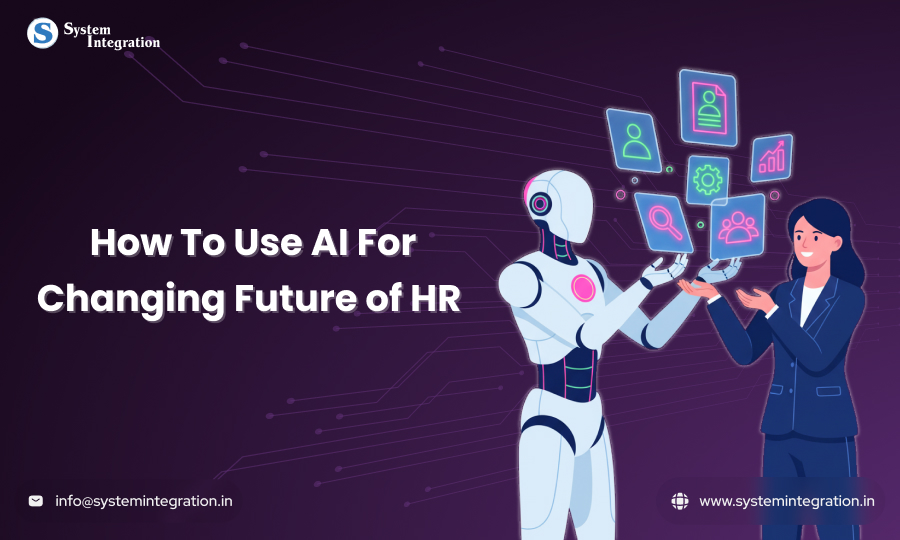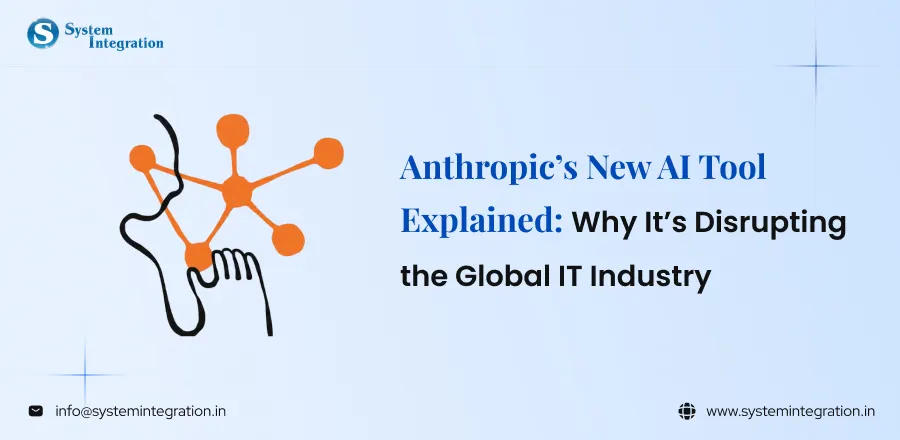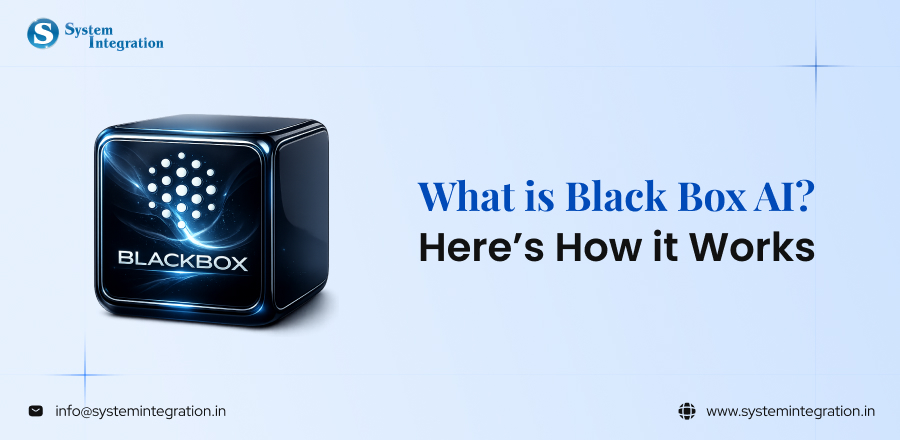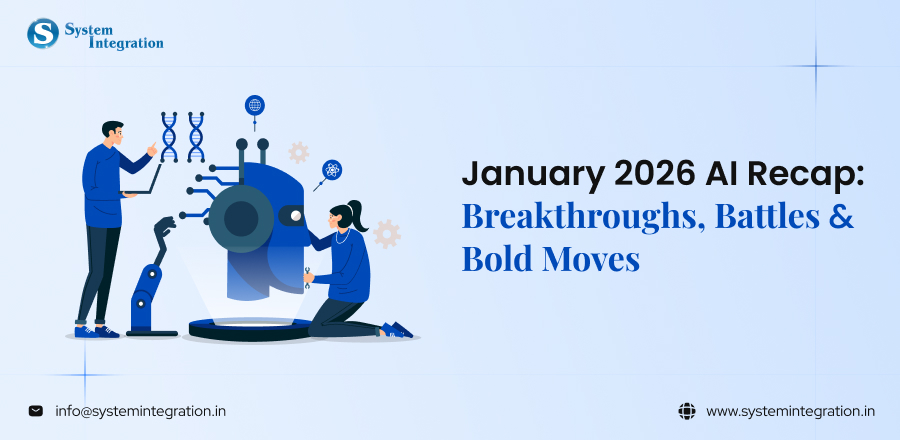Introduction
Artificial intelligence is at the forefront in changing the role of human resources and easing their work load. AI is changing how businesses recruit, engage, and retain talent by automating repetitive administrative tasks and providing data-driven insights for workforce planning.
For companies, this change is about creating more intelligent, flexible HR departments that can adapt to the needs of a dynamic, competitive market, and not just about increasing efficiency. HR teams are now discovering new ways to enhance decision-making, streamlining employee experiences, and concentrate on long-term growth promoting strategic initiatives as businesses adopt AI-powered solutions.
What is AI in HR?
AI in HR is the integration which utilizes AI technology that actively analyzes data, automates processes dependency, and improves decision making within this process.
Rather than wasting countless hours on non priority tasks such as sorting through resumes or scheduling interviews, AI aids HR teams in not only saving time but also being able to focus more on people. From hiring to retention, the HR department is becoming more efficient and data driven thanks to AI.
Types of AI Uses in HR
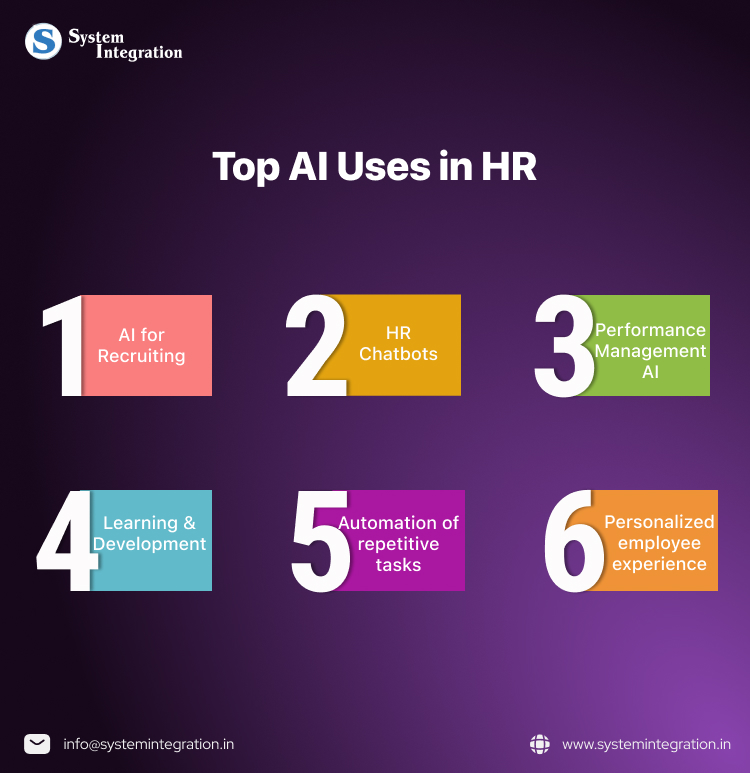
AI for Recruiting – It does automate resume screening, shortlisting the candidates and even AI based interviews.
HR Chatbots – Automatically answers HR questions from employees such as policies, leave or payroll.
Performance Management AI – Monitors productivity, feedback and growth trends of employees for fair assessments.
Learning & Development – Personalized employee training programs recommendation.
Automation of repetitive tasks – it automates the repetitive and low value administrative tasks.
Personalized employee experience – personalize the experience by using the data for a more supportive workplace.
Benefits of Using AI in HR
More Strategic Hr Focus
AI allows HR to work on high value tasks, strategic works and fostering a positive work culture. AI also supports more informed talent management by suggesting internal job opportunities and up skilling programs.
Enhanced Decision Making
It analyzes the large amount of data for various purposes like performance of employees, turnover, and furnishing the actionable insights that enable informed decision making.
Personalized Experience
It furnished customized training programs based on the data available of each employee and their needs and skill sets. It even enhances the overall experience through personalized job matching and smooth onboarding process.
Increased Productivity And Efficiency
AI automates repetitive and time taking tasks such as screening resumes, writing job details, scheduling interviews, increasing the overall efficiency. This aids in making the overall process faster and reducing the errors.
Challenges and Considerations for it
Data Privacy and Security
Challenge: HR manages sensitive employee information, and leveraging AI heightens the risk of data breaches or misappropriation.
solution: Enterprises have NO CHOICE but to follow data protection regulations, implement encryption and strict access control or risk compliance exposure.
Bias and Fairness
Challenge: AI models could accidentally perpetuate biases in hiring or performance reviews.
solution: Regularly assess AI algorithms, keep the check on data they are trained on, and mix in human judgment when making AI-based decisions so that they are fair and inclusive.
Transparency and Explainability
Challenge: Many AI tools are “black boxes,” making their decision making process hard to understand.
solution: Adopt explainable AI systems and communicate clearly to employees to promote transparency and trust.
How Will AI Shape the Future of HR
One of the most significant effects of AI in HR is recruitment. Sophisticated algorithms can sift through thousands of résumés in seconds to find the best fit based on skills and cultural fit; and they can even predict future job performance.
Chatbots are a great tool for time saving in recruiting by immediately providing responses to candidate inquiries. This enables HR leaders to spot issues early and tailor learning programmes as well as encourage great workplace culture. Is it too scifi to say that HR is going to stop being stupid? In this future, AI will make HR more data-driven, proactive, and personalized.
Key Areas Of Transformation
- Enhanced strategic planning
- Automated routine tasks
- Personalized employee experience
- Improved talent acquisition
- Data powered decision making
Implementing AI in HR: Best Practices
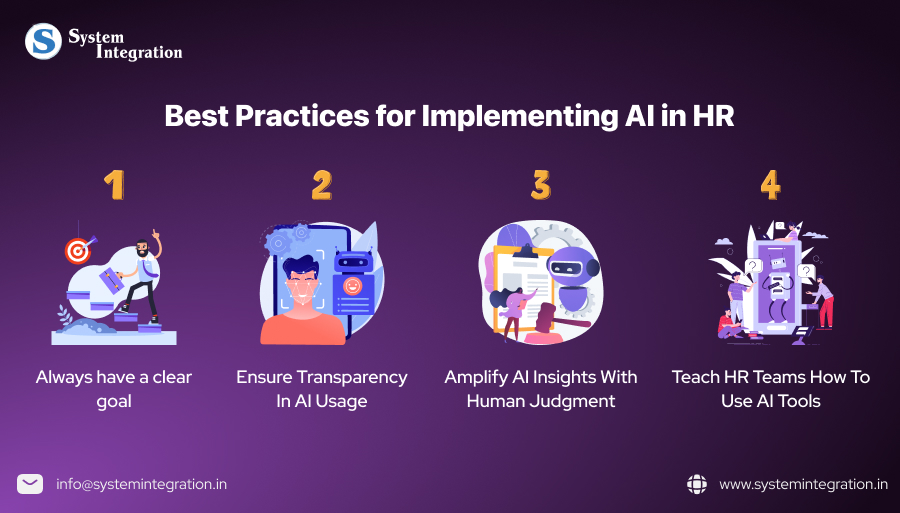
Start With Clear Goals
Before implementing AI, HR leaders must determine their goal. For instance, is the aim to optimise hiring?Increase employee engagement? And forecast voluntary attrition? By setting measurable goals, AI initiatives remain grounded in business needs and produce meaningful results.
Ensure Transparency In AI Usage
Workers may be unsure or skeptical about decisions made by algorithms, particularly in hot-button areas like hiring and performance reviews. To create trust, HR departments need to be transparent about how they use AI tools, what data is gathered and how decisions are informed.
Amplify AI Insights With Human Judgment
AI can parse massive data sets and flag patterns, but it shouldn’t determine who qualifies by itself. For example, an AI tool may help recognize candidates with the appropriate skills but cultural fit and soft skills are determined by humans.
Teach HR Teams How To Use AI Tools
The success of AI rests on the shoulders of HR professionals who understand and leverage it effectively. Training ensures that teams can interpret insights that AI generates, catch possible biases and fit technology smoothly into day-to-day systems.
Summary
AI is changing how businesses recruit, engage, and retain talent by automating repetitive administrative tasks and providing data-driven insights for workforce planning. With the help of AI, HR teams are now discovering new ways to enhance decision-making, streamlining employee experiences, and concentrate on long-term growth promoting strategic initiatives.
FAQs
HR professionals will shift to more strategic, human centric roles, requiring new skills like AI literacy, empathy, and critical thinking.
It helps in completing the tasks quickly and efficiently like automatically screening the resumes, scheduling interviews, answering questions via chatbox and more.
It totally depends on the company. Companies must implement robust data protection policies, ensure legal compliance, and furnish clear transparency to employees about the data usage.
It has both long term savings and upfront costs. The initial investment incorporates AI tools, AI softwares, data preparation, and hiring skilled talents. Ongoing costs involve maintenance, training, and infrastructure.


